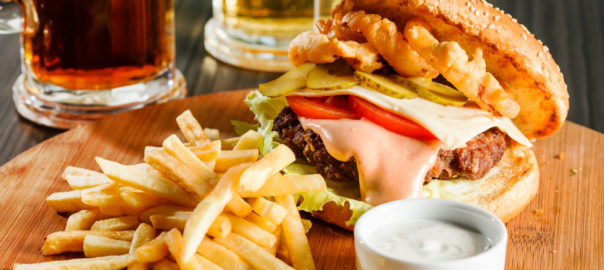Foods That May Contribute to Osteoporosis

If you’re at risk or have already been diagnosed, with osteoporosis, you probably want to do everything you can to strengthen your bones and prevent a fracture. You may be surprised to know that simple diet changes can greatly benefit your bones! In this post, we briefly discuss the foods that you should avoid if you have, or are at risk of developing, osteoporosis.
Foods that may possibly contribute to osteoporosis include:
Salt
The consensus on this one is pretty clear — high-sodium foods are bad for your bones. Sodium causes excessive calcium excretion through the kidneys, and calcium is vital for optimal bone health. You should limit your sodium to less than 2,3000mg per day. Your doctor may recommend an even lower daily sodium intake if you have certain health conditions.
Carbonated Drinks
Carbonated beverages usually contain phosphoric acid, which also increases excretion of calcium via the kidneys.
Caffeine
Caffeine actually leaches calcium directly out of your bones, making it obvious as to why it can be a problem for people with osteoporosis risk factors.
Alcohol
Heavy alcohol consumption is associated with lower bone density, even in younger populations, so only drink in moderation.
Beans
Some beans are high in substances called phytates, which can prevent the absorption of calcium in the body. But, this doesn’t mean that beans aren’t good for you. The solution? Simply soak your beans in water for a few hours before cooking them to reduce phytate levels (bonus: this will also aid in bean digestion. Win win!)
Busting Down a Couple of Bone Health Myths
Recently, red meat and nightshade vegetables, such as tomatoes, peppers, eggplant, and mushrooms, have gotten a bad rap as contributors to osteoporosis symptoms. Specifically, red meat has been accused of actually leaching calcium out of the bones, while nightshades are taking heat for causing bone inflammation.
However, scientific evidence and research does not support these claims.
While limiting red meat consumption is part of a healthy and eco-conscious diet, protein is a vital building block for bone development and repair. A consistent supply of amino acids is required for new bone cell generation, so eliminating red meat entirely may not be the best tactic for improving bone health.
Nightshade vegetables are nutritious and important for a healthy diet. Unless you have an allergy or are otherwise directed by a physician not to consume them, there’s no reason to limit your consumption of nightshades.
Regenerative Medicine Practice to Boost Your Bone Health
In addition to a healthy diet and lifestyle, there are regenerative medicine practices you can try to boost your bone health and prevent the dangers of osteoporosis. Stem cell therapy is one of the most effective and popular regenerative medicine techniques to promote new cell genesis and tissue repair, helping to reverse the damage caused by osteoporosis. Find a stem cell therapy practitioner in your area with the free search tool at www.regenerativemedicinenow.com.


